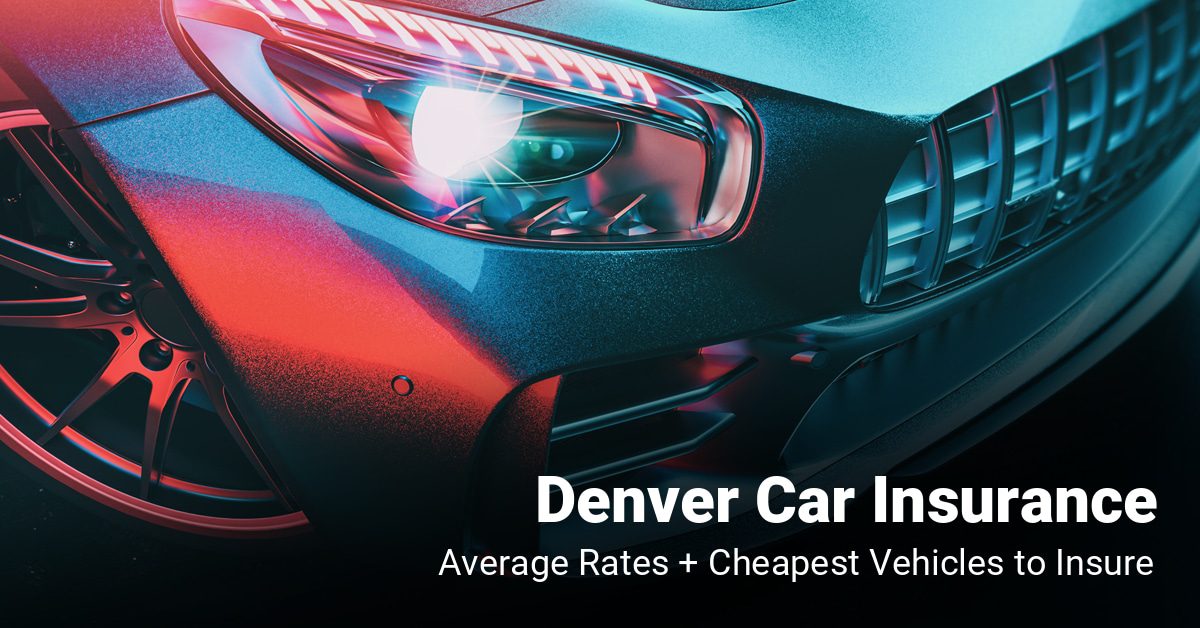Auto Insurance for Business: Protecting Your Vehicles
Introduction
Running a business often involves the use of vehicles for various purposes, such as transportation, deliveries, or services. However, accidents can happen at any time, which is why having auto insurance for your business is crucial. This article explores the importance of auto insurance for business owners, the different coverage options available, factors to consider when choosing insurance, cost-saving tips, and more.
Understanding Auto Insurance for Business
Auto insurance for businesses provides coverage for vehicles owned or used by a company. It differs from personal auto insurance as it considers the unique risks associated with business operations. By having the right coverage, you can protect your vehicles, employees, and the financial stability of your business.
Types of Auto Insurance Coverage
There are various types of auto insurance coverage available for businesses. These include:
1. Commercial Auto Liability Insurance
Commercial auto liability insurance protects your business from third-party claims for property damage or bodily injury caused by your vehicles. This coverage is essential to protect your company from expensive lawsuits and medical expenses.
2. Physical Damage Coverage
Physical damage coverage provides protection for your vehicles in case of accidents, theft, or vandalism. It includes collision coverage, which pays for damages caused by a collision, and comprehensive coverage, which covers non-collision incidents.
3. Uninsured/Underinsured Motorist Coverage
Uninsured/underinsured motorist coverage safeguards your business if you or your employees are involved in an accident with a driver who has no insurance or insufficient coverage. It helps cover medical expenses, lost wages, and damages.
4. Medical Payments Coverage
Medical payments coverage pays for medical expenses for you and your passengers, regardless of fault, if you’re involved in an accident. It can help cover ambulance fees, hospital bills, and other medical costs.
Importance of Auto Insurance for Business
Having auto insurance for your business is essential for several reasons:
1. Financial Protection
Auto accidents can result in significant financial loss, including repair costs, medical expenses, and legal fees. With the right coverage, your insurance can help mitigate these expenses and protect your business’s financial stability.
2. Legal Requirements
Many states require businesses to have auto insurance coverage. Failing to meet these legal requirements can lead to penalties, fines, or even the suspension of your business operations. Compliance with auto insurance laws is crucial to avoid legal complications.
3. Peace of Mind
Knowing that your vehicles and business operations are protected provides peace of mind. Auto insurance coverage allows you to focus on running your business without constantly worrying about potential accidents or liabilities.
Factors to Consider when Choosing Auto Insurance
When selecting auto insurance for your business, consider the following factors:
1. Coverage Needs
Evaluate your business’s specific needs and risks. Consider factors such as the number of vehicles, vehicle types, driver profiles, and the nature of your operations. This assessment will help determine the appropriate coverage limits and types required.
2. Insurance Provider
Research and compare insurance providers. Look for companies with a solid reputation, excellent customer service, and strong financial standing. Read reviews, seek recommendations, and assess their experience in providing auto insurance for businesses.
3. Deductibles and Premiums
Review the deductible options and premiums offered by different insurance companies. Find a balance between affordable premiums and reasonable deductibles that fit your budget while providing adequate coverage.
Cost of Auto Insurance for Business
The cost of auto insurance for businesses can vary based on several factors:
1. Vehicle Types and Usage
The types of vehicles and their intended use play a significant role in determining insurance costs. Factors such as vehicle value, size, weight, and cargo capacity affect premium rates.
2. Driver Profiles
Insurance companies consider driver profiles, including age, driving experience, driving records, and license status. Having experienced drivers with clean records can lead to lower insurance premiums.
3. Coverage Limits and Deductibles
Higher coverage limits and lower deductibles typically result in higher premium rates. Consider your business’s risk tolerance and financial capabilities when selecting coverage limits and deductibles.
4. Claims History
Insurance companies assess your claims history to determine your risk profile. A history of frequent claims or involvement in accidents may lead to higher premiums.
Tips for Saving on Auto Insurance Premiums
To save on auto insurance premiums for your business, consider these tips:
1. Bundle Policies
Some insurance companies offer discounts when you bundle multiple insurance policies, such as auto, property, and liability coverage, with the same provider.
2. Driver Training Programs
Encourage your drivers to participate in defensive driving or driver training programs. Insurance companies often offer discounts for drivers who complete these courses.
3. Vehicle Safety Features
Equipping your vehicles with safety features, such as anti-lock brakes, airbags, and anti-theft systems, can lead to lower insurance premiums.
4. Review and Update Policies Regularly
Regularly review your insurance policies to ensure they align with your business’s changing needs. Remove any unnecessary coverage and adjust coverage limits as required.
Claims Process and Handling
In the unfortunate event of an accident, it’s crucial to understand the claims process and how to handle it effectively. Follow these steps:
1. Notify Your Insurance Provider
Report the accident to your insurance provider as soon as possible. Provide them with all the necessary details, including the date, time, location, and description of the incident.
2. Gather Evidence
Collect as much evidence as possible, such as photographs, witness statements, and police reports. This documentation will support your claim and help establish liability.
3. Cooperate with the Investigation
Cooperate fully with your insurance company’s investigation process. Provide any requested documents or information promptly to ensure a smooth claims process.
4. Follow Up on the Claim
Stay in touch with your insurance adjuster and follow up on the progress of your claim regularly. Be prepared to provide any additional information or documentation as requested.
Common Mistakes to Avoid with Auto Insurance
Avoid these common mistakes when dealing with auto insurance for your business:
1. Underinsuring
Underestimating the value of your vehicles or choosing insufficient coverage limits can leave your business exposed to financial risks. Ensure you have adequate coverage to protect your assets.
2. Neglecting Regular Policy Reviews
Your business evolves over time, and so do its insurance needs. Neglecting to review and update your policies regularly can result in coverage gaps or overpaying for unnecessary coverage.
3. Failure to Disclose Information
Provide accurate and complete information to your insurance provider during the application process. Failing to disclose relevant details, such as past accidents or driver violations, can lead to denied claims or policy cancellation.
4. Ignoring Safety Measures
Neglecting safety measures, such as regular vehicle maintenance or driver training programs, can increase the likelihood of accidents. Implement and enforce safety protocols to minimize risks.
Related Article:-
- 5 Expert Tips from an Auto Insurance Lawyer
- Cheap Business Insurance: Save Money and Protect Your Business Today
Auto Insurance for Different Types of Businesses
Auto insurance requirements and considerations may vary based on the type of business you operate:
1. Delivery and Courier Services
Businesses involved in delivery or courier services often require specialized coverage due to the frequent use of vehicles for transporting goods and the potential for accidents during deliveries.
2. Contractors and Tradespeople
Contractors and tradespeople typically rely on their vehicles to transport tools, equipment, and materials. They may require coverage that protects these assets in addition to liability coverage.
3. Professional Services
Professional service providers, such as consultants or real estate agents, may use their vehicles to meet clients or attend business meetings. They may require coverage that includes business use and liability protection.
Special Considerations for Commercial Vehicles
Commercial vehicles, such as trucks or vans, often have unique insurance considerations:
1. Commercial Vehicle Classification
Insurance companies classify commercial vehicles based on weight, size, and usage. The classification affects the type of coverage required and the associated premiums.
2. Cargo and Freight Coverage
If your business involves transporting goods, consider cargo and freight coverage to protect the value of the cargo in transit.
3. Regulatory Compliance
Commercial vehicles must comply with various regulations, such as Department of Transportation (DOT) requirements. Ensure your vehicles meet the necessary standards to avoid penalties and maintain insurance coverage.
Auto Insurance Laws and Regulations
Understanding auto insurance laws and regulations is crucial for compliance and ensuring adequate coverage:
1. State Insurance Requirements
Each state has its own insurance requirements for businesses. Familiarize yourself with the specific laws and ensure your coverage meets the minimum requirements.
2. Commercial Driver’s License (CDL) Requirements
For businesses operating commercial vehicles, ensure your drivers hold the necessary commercial driver’s licenses (CDLs) as required by state and federal regulations.
Benefits of Working with an Insurance Agent
Consider the advantages of working with an insurance agent:
1. Expert Advice
Insurance agents specialize in understanding the complexities of insurance policies. They can provide expert advice tailored to your business needs, helping you make informed decisions.
2. Time and Effort Savings
Navigating the insurance landscape can be time-consuming. An insurance agent can handle the research, comparisons, and paperwork on your behalf, saving you valuable time and effort.
3. Claims Assistance
In the event of an accident or claim, an insurance agent can guide you through the claims process, helping you understand your rights, obligations, and potential outcomes.



